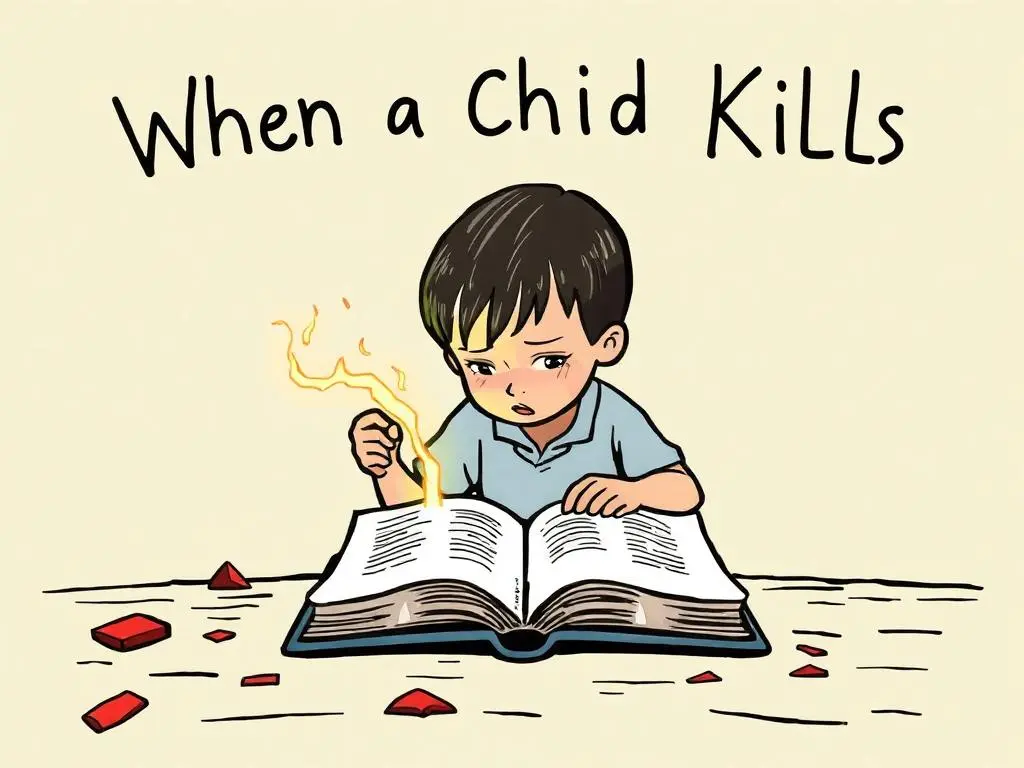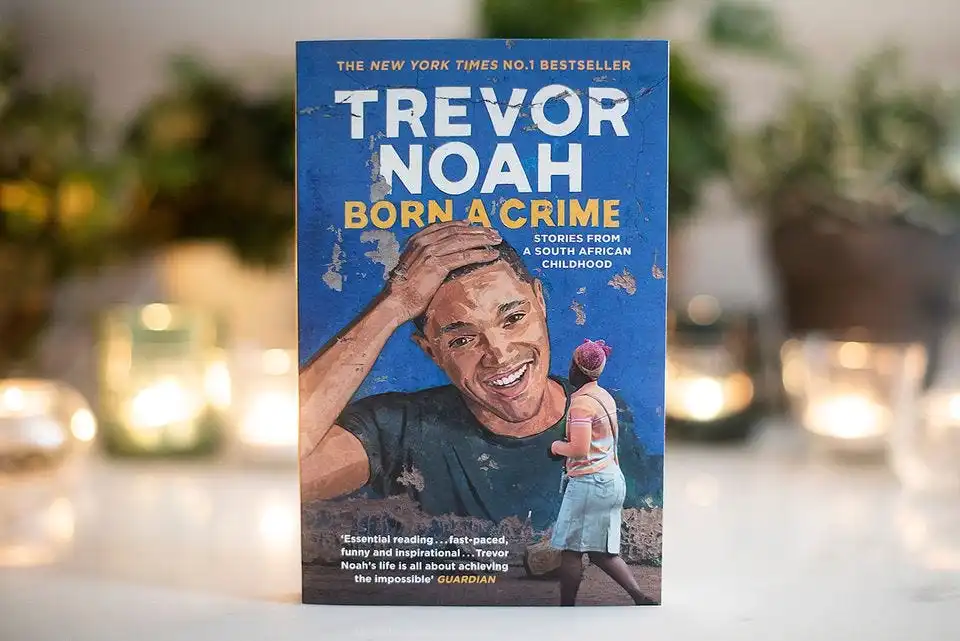Nobody Will Tell You This but Me: A True (as Told to Me) Story, by Bess Kalb: An Excerpt
You said your first words to me and you also stood up for the first time when I was there.
I would fly to New York every week when your mother was finishing her residency, and I’d sit with you in the apartment and hold you in my arms and talk to you until you said something back. Waiting for you to mirror my words.
When you were seven or eight months old, I was pacing around on the cordless phone in the living room in the house on Martha’s Vineyard, ranting and raving and waving my free arm around in the air. You yelped out for me so I’d pay attention, then pulled yourself up by the edge of the low wooden coffee table and gave me a big wave and a smile. I stopped in my tracks. I turned off the phone and I waved back. “Oh, hi, angel!” You let go of the table and teetered around for a second or two and fell smack down on your tush, as astonished as I was. Thank God you didn’t fall forward.
[ Return to the review of “Nobody Will Tell You This but Me.” ]
Two years later you would put on my red high-heeled pumps and parade around the house yelling, “Hank! Robin! Bessie!” A riot. You would open my jewelry drawers and carefully examine each piece in its individual felt square. You’d pick up the rings and marvel at them sparkling in the light. You’d try on the enamel bangles and shake them around, and you’d run the strands of pearls between your fingers. All of them your treasures. I’d always say the same thing: “You want it? One day it’ll be yours.” “What day?” “When you’re a little older.” And I’d give you a junky pin or an amber beaded necklace, and you’d be ecstatic and we’d leave it at that.
You’d sit on one of the cushioned stools in my powder room and watch me apply my lipstick. My mouth stretched open in a wide circle as I coated my lips in a bright shade of coral. Then I’d whip out a tissue from its silver box, fold it in half, rest it in my mouth, and smack my lips together on it. You must always blot or it’ll clump up and settle around the edges and you’ll look like an old fortune teller.
You begged your mother for a lipstick when you were in the third grade. I got a call from your mother.
“She said you let her wear your makeup.”
“Oh, please. We have fun.”
“Mom. She’s a kid. She plays kickball.”
“All little girls want to wear lipstick.”
“I didn’t.”
“No kidding.”
Click.
When you were twelve years old, you came down to Palm Beach for winter break all by yourself for the first time. I waited for you at the gate, and as you stepped into the terminal we charged for each other like bulls.
Every morning we brought our books to the pool and sat out under big hats with zinc on our noses. We ate cantaloupe slices at the kitchen table and talked about whatever there was to say. We went to Neiman’s and Saks, and I bought you a lavender linen scarf you wore every single day for a year.
One afternoon I took you along to my beauty parlor appointment on Worth Avenue, and I asked the girl to blow-dry your hair straight. You sat in the chair reading your book, and I looked at you and I couldn’t believe how lucky I was.
My pet.
Your mother never let me hear the end of it.
It was almost as bad as the time I cut off a lock of your hair when you were a very little girl. She made a federal case out of it. You’d think I shot you in the head. You had the most beautiful hair when you were three or four—a very light reddish brown with streaks of gold through it. We were alone in the apartment after nursery school, and I took a pair of kitchen shears and chopped off a curl. You didn’t mind. Besides, I asked you!
“Can Grandma have a piece of your hair?”
I’ll never forget what you said.
“Can I have it back?”
I laughed. “Sure!”
I cut it off, put it in a Ziploc, and it stayed in my handbag for a year. I took it to every appointment at every beauty salon.
“Match this.”
***
I wasn’t ill for very long before I died, but right before my heart went out, I gave your mother jewelry. I showed her my drawer in the bedroom in Palm Beach and I started putting all of these pieces in her hands. I made her get a Ziploc bag when she couldn’t hold it all. It was mostly junk—all the diamonds and fine pieces were in the vault. But I gave your mother my black pearl necklace, a pin from Russia, my clip-ons, the bangle I brought back from Italy, and my brass ring inlaid with colored stones the size of jelly beans. She didn’t refuse like she usually did. She just said, “Thanks, Mom.” A week later I lay down and that was that.
I knew and she knew. It’s why I didn’t call you. It’s why I refused the phone when you called: you called your mom and asked her to give the phone to me and I wouldn’t let her. You tried to video chat—you needed to see me. The last you saw of me was on the screen on your phone. The top half of my face, just my eyes. Your mother was holding it. I said, “Oh, Bess,” and then, “Put it away, Robin.”
The longest we ever went without speaking was the week and a half before I died.
I’d been sick on and off for years, but we didn’t talk about it. We’d drive down South Ocean Boulevard and you’d take the wheel with one outstretched arm while I hacked into a tissue.
[ Return to the review of “Nobody Will Tell You This but Me.” ]
We never discussed our illnesses because we didn’t want the other person to feel helpless. What was there to say? There was nothing either of us could do to fix it.
When you were diagnosed with ulcerative colitis in college, I couldn’t stand it.
You lied to me almost immediately. You lied about the hospitalization—“I went in and saw a great doctor, they figured it out, and I’m on the right medication and I’m going to be fine.” You told me it was curable. You lied about the pain and the blood and the gore. When Evan, that boyfriend you had, broke up with you two weeks later, all you told me was he wasn’t coming to Seder. The rat bastard. I asked why not and you held the phone away from your head and I could hear you cry.
Your face became swollen from the steroids. You would lie awake at night sweating from the medicine and the fear, wondering if you’d die from it one day. Food would hurt you. Stress would hurt you. Your heartbreak hurt you. I should have killed him. Your grandfather almost did. “If I see him on the street, I’ll break his skull.” He really said that.
When you sank into a depression after the diagnosis, you didn’t let me know. You became very thin. Your arms were like strings and your head bobbled on your neck. You dropped classes and you didn’t tell me. I’d ask you how school was and you’d say, “Fine”—a lie. I’d ask when you were coming to Florida and you’d get very quiet. You couldn’t see past the end of the day. You were in the dark.
You’re like me. Easily upset. Easily stuck. Easy to cry. Easy to mope. Easy to lie through your teeth, to swallow the blood in your mouth and laugh.
We get to the point when our bodies won’t let us hide inside them. And that’s the only reason we die. I wouldn’t let that happen to you. I told you, “Bessie. Drop out. It doesn’t matter. You must do whatever makes you happy. Life’s too long if you’re miserable.” You could beat your illness. You didn’t have a choice.
When you came to Martha’s Vineyard that summer, you brought your friend Katie, who is wonderful. She’s a very good friend, Bessie. An “up” person. Always keep her close. God forbid you outlive Charlie.
So you landed in the dinky Cape Air plane on Martha’s Vineyard, and of course I was waiting in my spot right at the gate on the landing strip at the airport. And I was waving like a lunatic and you smiled a big, happy smile. And your face was like a chipmunk’s—more than usual—and your eyes were sunken and you could barely pick up your backpack when the man took it out of the compartment on the wing. When they opened the gate, I ran onto the tarmac and pulled you into my arms and into my chest and your chin bobbed down on my shoulder, and I squeezed you until I felt your vertebrae pop. I held you so hard you could barely draw breath. “I love you, I love you, I love you.” Then we held hands as we walked to the car and we didn’t say a thing.
You know the story of my zayde. He was always dead broke and in trouble with a bookie, but he made it through the pogroms and the passage to America, and he kept living until everyone he knew was dead. And you know what he said—I’ll say it again, I don’t care if you’ve heard it a thousand times. I don’t care if you can say it backward in French standing on your head. He told me, “Bobby, when the world is cracking behind your feet, you keep walking forward.”
You march forward.
January, February, March.
We thought my lungs would do it, but it was my heart that went out in the end. My lungs were always the problem. Blame the smoking, though I never did. Blame the years bringing lunch to your grandfather’s construction sites breathing in God knows what. Whatever it was, as I got older, they troubled me constantly. Your grandfather became very nervous when I’d cough in my sleep. He’d stay up at night watching me, tears in his eyes. I was intubated more times than you know. I’d call your father sometimes very late at night—thank God your mother married a pulmonologist—and he’d listen to my breathing over the phone and he’d send me to the emergency room. I had operations. We never talked about it—you’d be so far away out in California. What was I going to do, ruin your day? So I’d let my phone go to voice mail until I could say the words: “I’m fine, Bessie. I’m fine.” I’d leave enough of it out, but I wasn’t lying.
In my last few years, everyone was sure of two things: I could go at any second, and I’d live forever. I’d let it slip to you when I was very tired—I’d taunt you with it: “You know, I’m not going to be around forever.” You’d say your line: “Grandma, you’re going to walk my children to preschool. You’re going to torture them like you tortured me.” When I was humoring you, I’d say, “Fine,” and when I was feeling angry, I’d just say, “No.” You can’t say I was ever wrong.
I was always very active, as hard as it was. I’d walk every day. In Florida I’d put on my sneakers and get out of the building, and I’d walk down South Ocean Boulevard until the curve in the road, then I’d walk back. I’d walk with a friend and gossip, and when they all died, I’d walk with your grandfather. We didn’t have to say much, but we walked. I walked at my pace—fast, head low, onward. Faster than him. He’d shout, “Bob! Slow down!” and I’d say, “Hank! Speed up!”
On the Vineyard we’d drive fifteen minutes from the house to Menemsha and park at the Galley and walk the dock. We’d go all the way to the end and back—sometimes twice if I was feeling spry and there wasn’t too much wind. Before we got back to the car, I’d get a veggie burger from the take-out window and your grandfather would get the fried chicken wings. Sometimes I’d get a soft-serve ice cream or French fries and a decaf iced coffee. Or we’d get calamari and onion rings for later. We earned it.
But by the end it was an accomplishment if I walked anywhere. I walked on the treadmill in the apartment in Florida very slowly—your mother watched me do that in the last days. “Mom! Slow down!” I’d get angry. It was very upsetting becoming so slow. To be stuck. For your body to beg you to stop. For nurses to come into the house and bathe me when I couldn’t get out of bed. You can’t imagine. You can’t imagine the pain of becoming slow, of knowing it’s as fast as you’ll ever be again, of not being able to call you, of letting the phone ring until it stopped because I couldn’t tell you I was all right. In my last week, you didn’t hear from me. I didn’t have anything to say.
You mustn’t be so angry at yourself for not getting through to me in those last days. You’ll never escape the knife blade of that guilt pressed to your throat. You must move forward. You’re sorry and so am I. What are we supposed to do now? Talk about it? Ha. You can write all you want, but you’re still at a desk in a world where I don’t exist. I’m the way you think.
[ Return to the review of “Nobody Will Tell You This but Me.” ]




